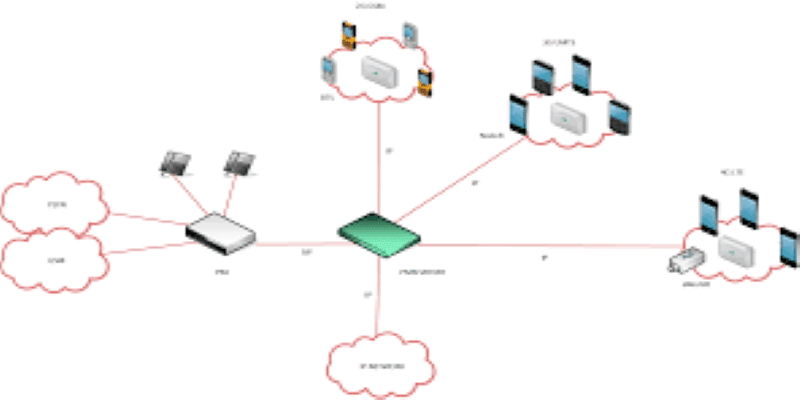
About Course
Cellular Networks
The Wireless Network course starts with a discussion on the evolution of various technologies, such as 0G, 1G, 2G, 2.5G, 3G, 4G, and 5G. In short:
- 0G refers to pre-cellular mobile telephony technology in the 1970s, such as Radio telephones that some people had in their cars before the advent of cell phones
- 1st Generation or 1G started in the late 1970s and early 1980s that represented a leap in mobile communication in terms of capacity and mobility.
- 2G network was first launched in Finland in 1991. In 2G networks started becoming digital and the circuit switching concept was introduced.
- 2.5G refers to the addition of GPRS or General Packet Radio System, and EDGE or Enhanced Data Evolution for GSM Evolution. This introduced data or Packet Switching on mobile devices.
- 3G network was first launched by NTT in JAPAN in 2000 1. In this generation, networks were based on concepts that stated that Packet Switched will be applicable for Data Services Only and voice was still using Circuit Switching concepts.
- 4G networks refer to Mobile WiMax and LTE or Long Term Evolution Standards that are competing to comply with 4G requirements of ITU. First mobile WiMax and LTE networks were commercially launched in 2008 and 2010 respectively. It is based on Packet Switched for both Voice and Data services.
- 5G is the subject of international research efforts seeking to achieve communications speeds of 10 Gbps or greater, enabling higher-definition video transmission and a range of additional benefits.
The above-mentioned generations of mobile networks are discussed in detail in the Cellular Networks course content. The course includes GSM/3G/LTE network architecture. The nodes used in the different networks are covered including their functions.
The Core Network is the brain of the network and performs essential functions like user authentication, location update, etc. The core network, protocols, and interfaces used in the core network are part of the learning content.
Who this Cellular Networks course is for:
- Anyone interested to know about cellular networks and their evolution
Course Content
Cellular Networks
-
Introduction to Cellular Networks: 1G/2G/3G – Part 1
10:38 -
Introduction to Cellular Networks: 1G/2G/3G – Part 2
14:20 -
Introduction to Cellular Networks: 1G/2G/3G – Part 3
00:00 -
Introduction to Cellular Networks: 1G/2G/3G – Part 4
00:00 -
Introduction to Cellular Networks: 1G/2G/3G – Part 5
00:00 -
Introduction to Cellular Networks: 1G/2G/3G – Part 6
00:00 -
Introduction to Cellular Networks: 1G/2G/3G – Part 7
00:00 -
Introduction to Cellular Networks: 1G/2G/3G – Part 8
15:00 -
Introduction to LTE: Part 1
00:00 -
Introduction to LTE: Part 2
00:00 -
Introduction to LTE: Part 3
00:00 -
Introduction to LTE: Part 4
00:00 -
Introduction to LTE: Part 5
00:00 -
Introduction to LTE: Part 6
00:00 -
Introduction to 4G LTE-Advanced :Part 1
00:00 -
Introduction to 4G LTE-Advanced : Part 2
00:00 -
Introduction to 4G LTE-Advanced : Part 3 – MIMO
00:00 -
Introduction to 4G LTE-Advanced : Part 3 – MIMOsson
00:00 -
Introduction to 4G LTE-Advanced: Part 5
00:00 -
Introduction to 4G LTE-Advanced: Part 6
00:00 -
Introduction to 4G LTE-Advanced: Part 7
00:00 -
Introduction to 4G LTE-Advanced: Part 8
00:00 -
Introduction to 4G LTE-Advanced: Part 9
00:00 -
Introduction to 5G: Part 1
00:00 -
Introduction to 5G: Part 2
00:00 -
Introduction to 5G: Part 3
00:00 -
Introduction to 5G: Part 4
00:00 -
Introduction to 5G: Part 5
00:00 -
Introduction to 5G: Part 6
00:00 -
Introduction to 5G: Part 7
00:00 -
Introduction to 5G: Part 9
00:00
Student Ratings & Reviews

No Review Yet
